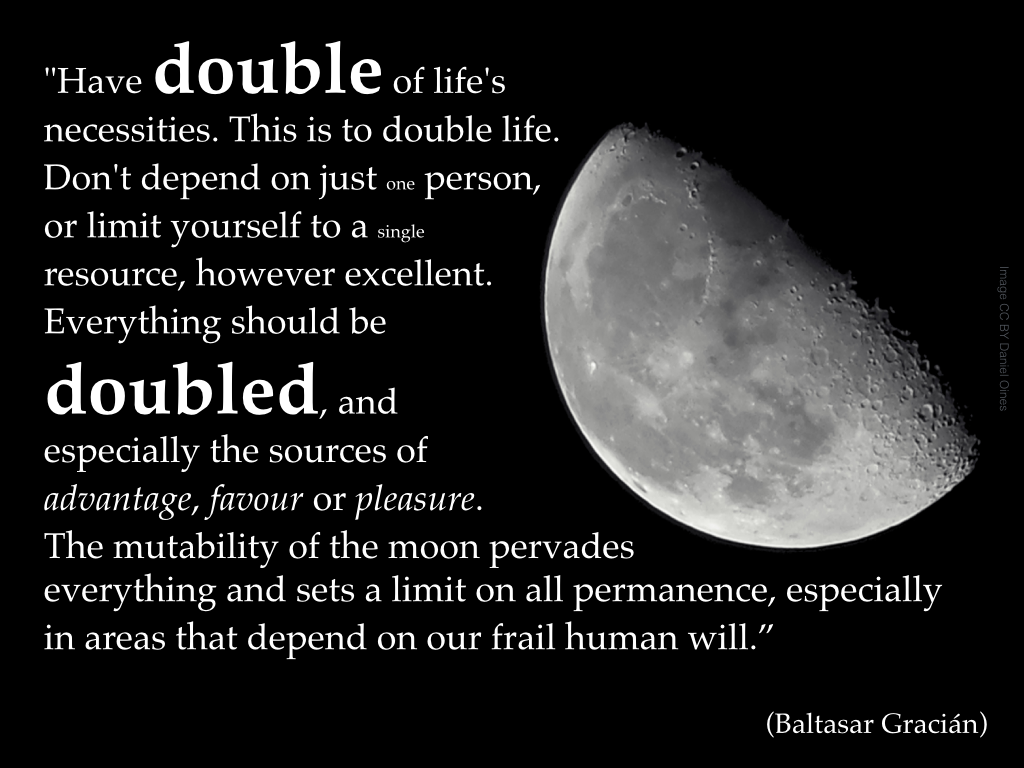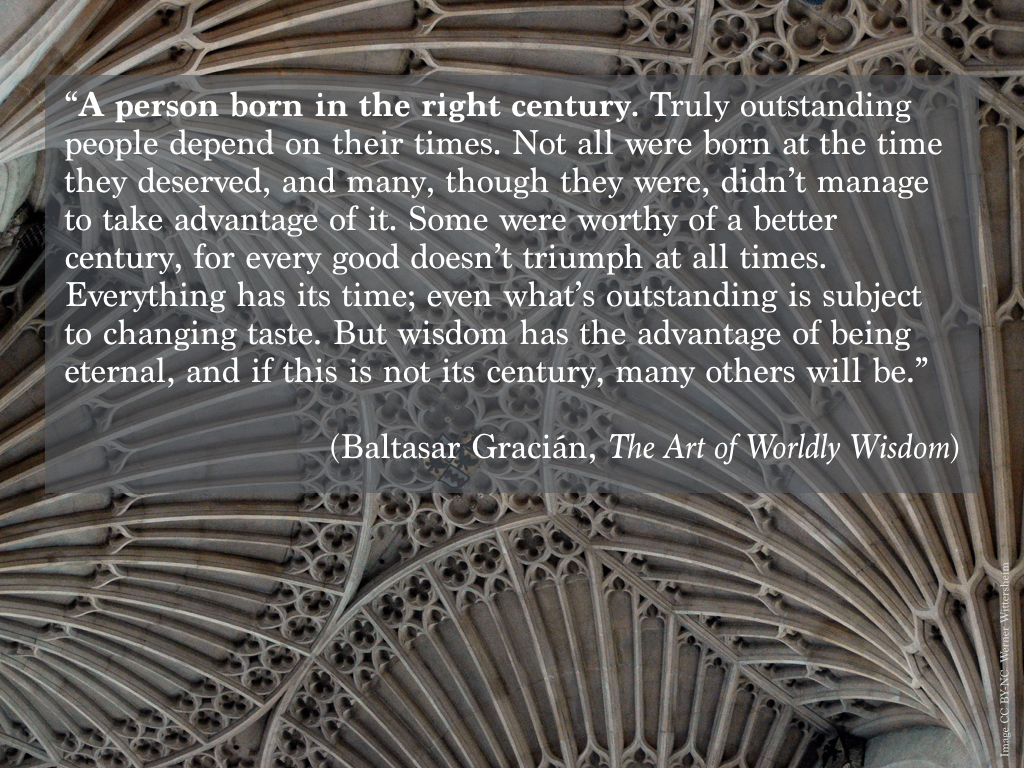
This maxim, #134 in Baltasar Gracián’s The Pocket Oracle and Art of Prudence, could be read in an unhelpful way. But instead of reading this as a celebration of selfishness, I see this (especially in the light of his other maxims) as an exhortation to be what Nassim Nicholas Taleb would call Antifragile. Have options. Don’t put all of your eggs in one basket.
The whole set of Wednesday Wisdom images can be found in my Creative Commons-licensed Flickr set.

I’ve decided to resurrect a series I started and then abandoned five years ago called Wednesday Wisdom. You can see the previous posts in the series here. This one is actually a lengthier version of #12.
I’m a big fan of Baltasar Gracián’s The Pocket Oracle and Art of Prudence. In fact, it’s the only dead-tree book I carry when I’m travelling. People wax lyrical about Marcus Aurelius, Seneca and other Stoic philosophers, but I’ve found none so applicable to modern life as the words this 17th century Jesuit priest.
The whole set of Wednesday Wisdom images can be found in my Creative Commons-licensed Flickr set. All of the existing ones are quotations from Gracián, but going forward, I might mix things up a bit!
I’m reading Zen and the Art of Motorcycle Maintenance at the moment. It’s a bit of a classic, so I don’t know why it’s taken me so long to get around to it.
Last night, I came across the following passage. It must be quite famous as I’ve stumbled across it before:
But to tear down a factory or to revolt against a government or to avoid repair of a motorcycle because it is a system is to attack effects rather than causes; and as long as the attack is upon effects only, no change is possible. The true system, the real system, is our present construction of systematic thought itself, rationality itself, and if a factory is torn down but the rationality which produced it is left standing, then that rationality will simply produce another factory. If a revolution destroys a systematic government, but the systematic patterns of thought that produced that government are left intact, then those patterns will repeat themselves in the succeeding government. There’s so much talk about the system. And so little understanding.
This made me think about Purpos/ed. Andy and I are often asked when we’re going to produce a manifesto, or what the ‘next level’ is. Well, that’s the kind of thinking that got us here in the first place.
Pirsig reminds us that even things that seem purely physical (such as steel) are nevertheless human constructs. Despite seeming permanent and ‘natural’ steel is not a substance that exists in nature. It’s the product of human imagination.
Likewise, there is no ‘state of nature’ for education systems. No natural way that we should organise learning.
We’d do well to remember that sometimes.


